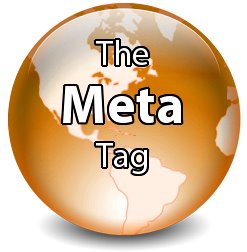The HTML meta tag is surrounded with confusion. It serves many purposes and most people don’t understand its many uses. Many people spam keywords in their meta tags to increase their SEO, whilst others use it for site redirects; are these methods effective? We’re going to uncover the truth about meta tags.
Do meta keywords & description improve search engine ranking?
 The short answer: no they do not. Meta keywords are generally not worth your time to add. However the meta description is often used by Google to display the site page’s description instead of it automatically generating something based off the page’s content. This does not however make your web page rank any higher. In case you don’t know how to make a meta description you just do the following:
The short answer: no they do not. Meta keywords are generally not worth your time to add. However the meta description is often used by Google to display the site page’s description instead of it automatically generating something based off the page’s content. This does not however make your web page rank any higher. In case you don’t know how to make a meta description you just do the following:
<meta name="description" content="You put your site's description here."/>
Is using meta redirects a good idea?
Yes and no, depending on the circumstances. If your site has moved and you want to redirect people to your new site I would not advise you to use it unless you don’t have access to a server side language such as PHP. Google automatically ignores pages that are redirects and does not follow where the page redirects to. It’d be a much better choice to send a redirection header, which Google does follow. You can do so in PHP like this:
header('Location:http://newsite.example.com');
If you would like to know how to make meta redirects and don’t know already you can use the following HTML snippet:
<meta http-equiv="Refresh" content="10;url=http://www.example.com"/>
You can replace “10″ with the number of seconds you’d like the page to wait before redirecting.
In conclusion, avoid meta redirects if possible.
Is stopping bots from indexing certain pages OK to do with meta tags?
It is OK, but you have to realize a couple things:
1) Only the ‘friendly’ bots (such as Google, Yahoo and MSN) will not index the page.
2) Using robots.txt is much easier to do than individually adding a meta tag to each page you don’t want search engines to index.
For those who don’t know how to use meta tags to stop search engines from indexing a page you add this to the header section:
<meta name="robots" content="NOINDEX"/>
What are some other uses of the meta tag?
The meta tag has many other uses in addition to the ones mentioned above. For example you can add copyrights like this:
<meta name="copyright" CONTENT="© 2010 My Company">
You can also declare character sets which will let your site validate (assuming there are no other errors) like this:
<meta http-equiv="content-type" content="text/html; charset=UTF-8"/>
If you want ONLY Google not to index your page you can do this:
<meta name="GOOGLEBOT" content="NOARCHIVE"/>
We hope this article helped you out. Please note that we don’t know for sure how search engines rank a page. This article has been written according to our experience but these practices may change any time.